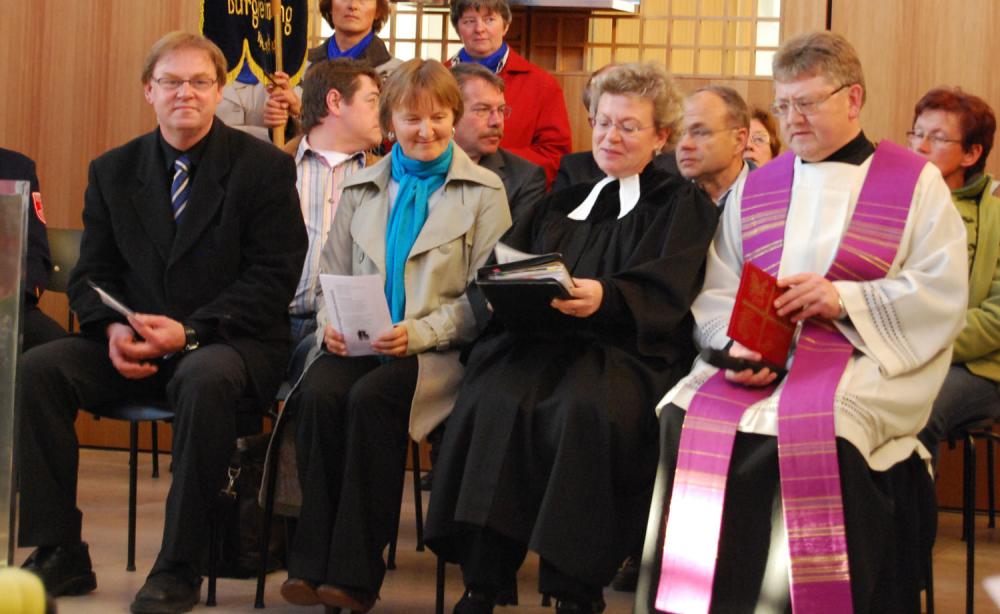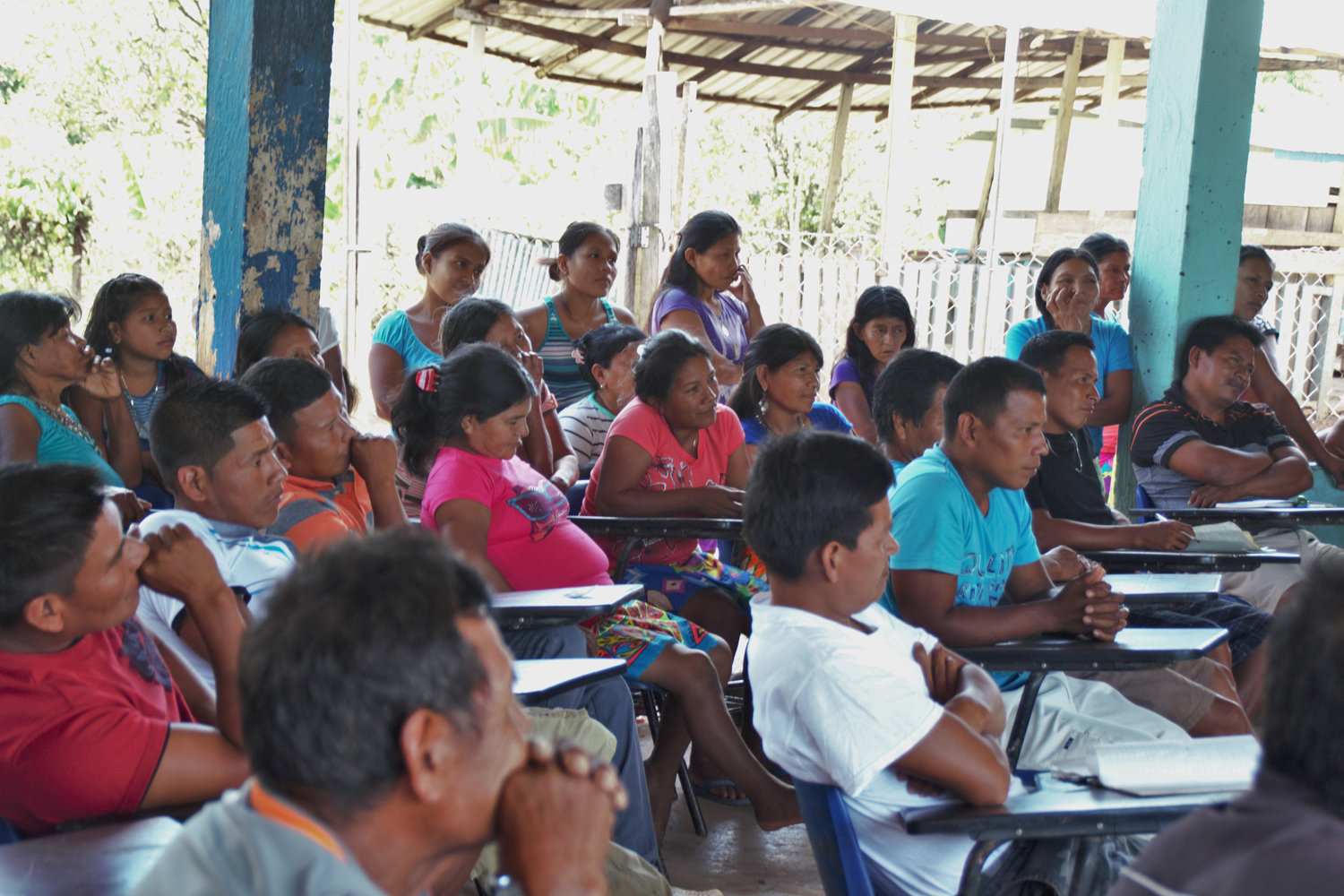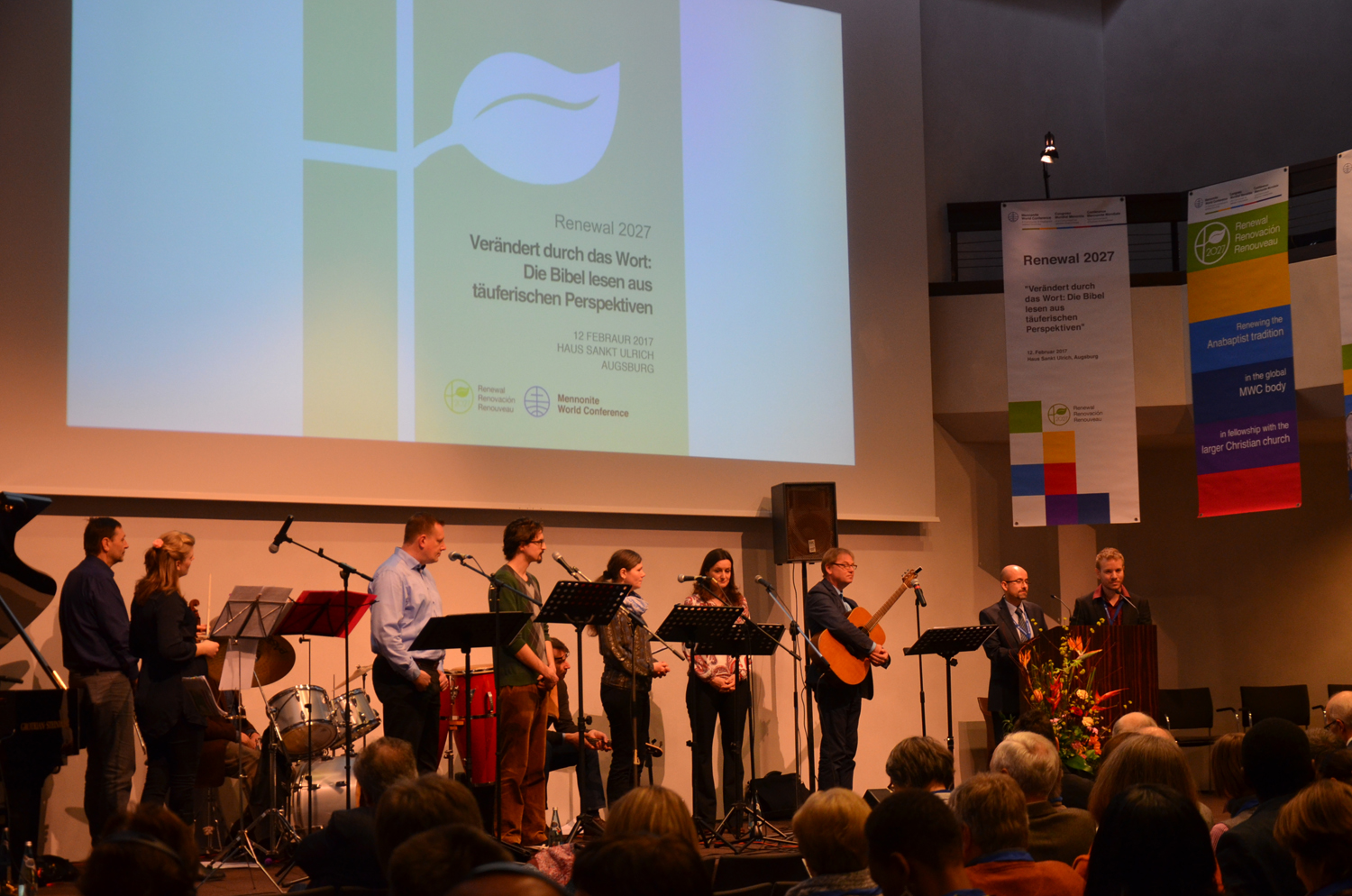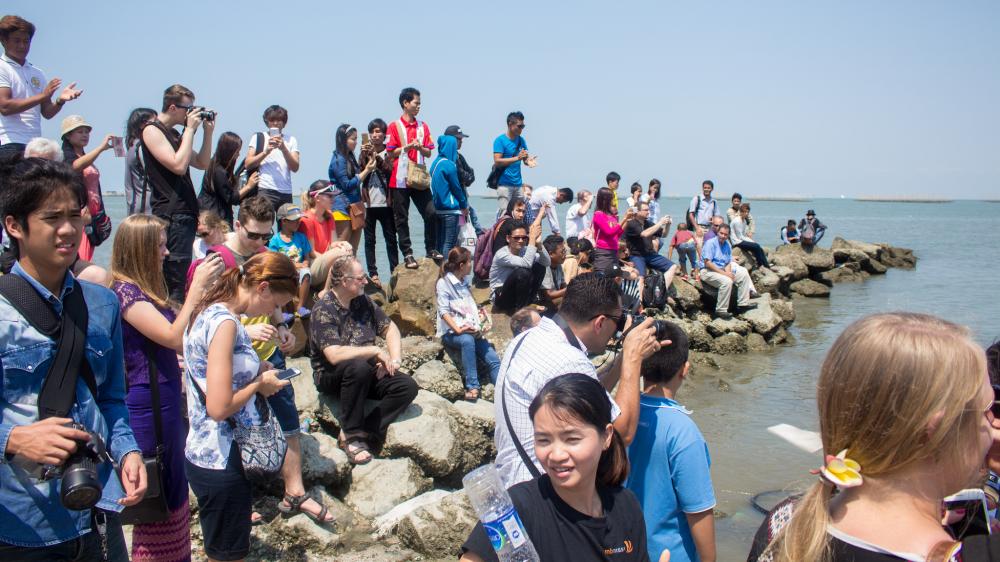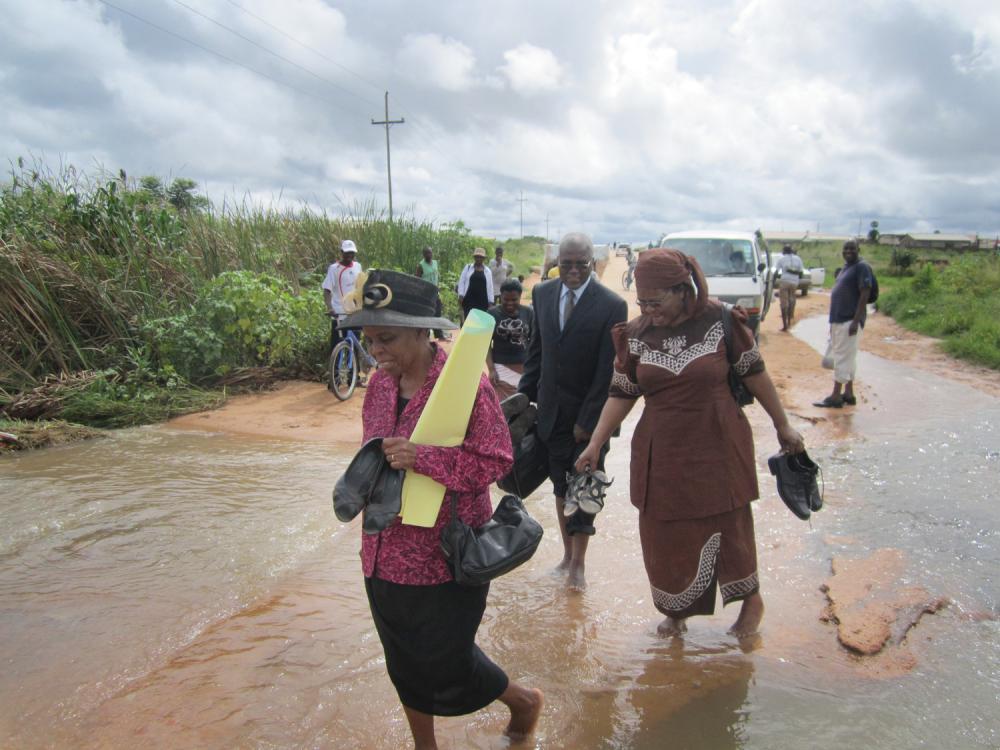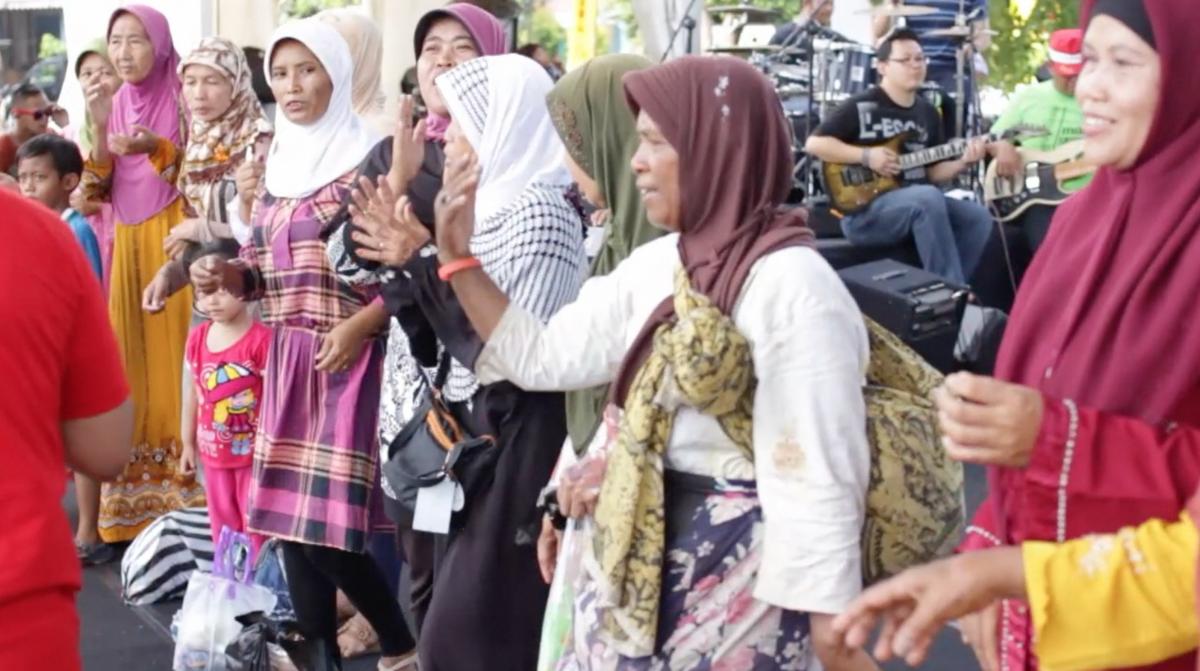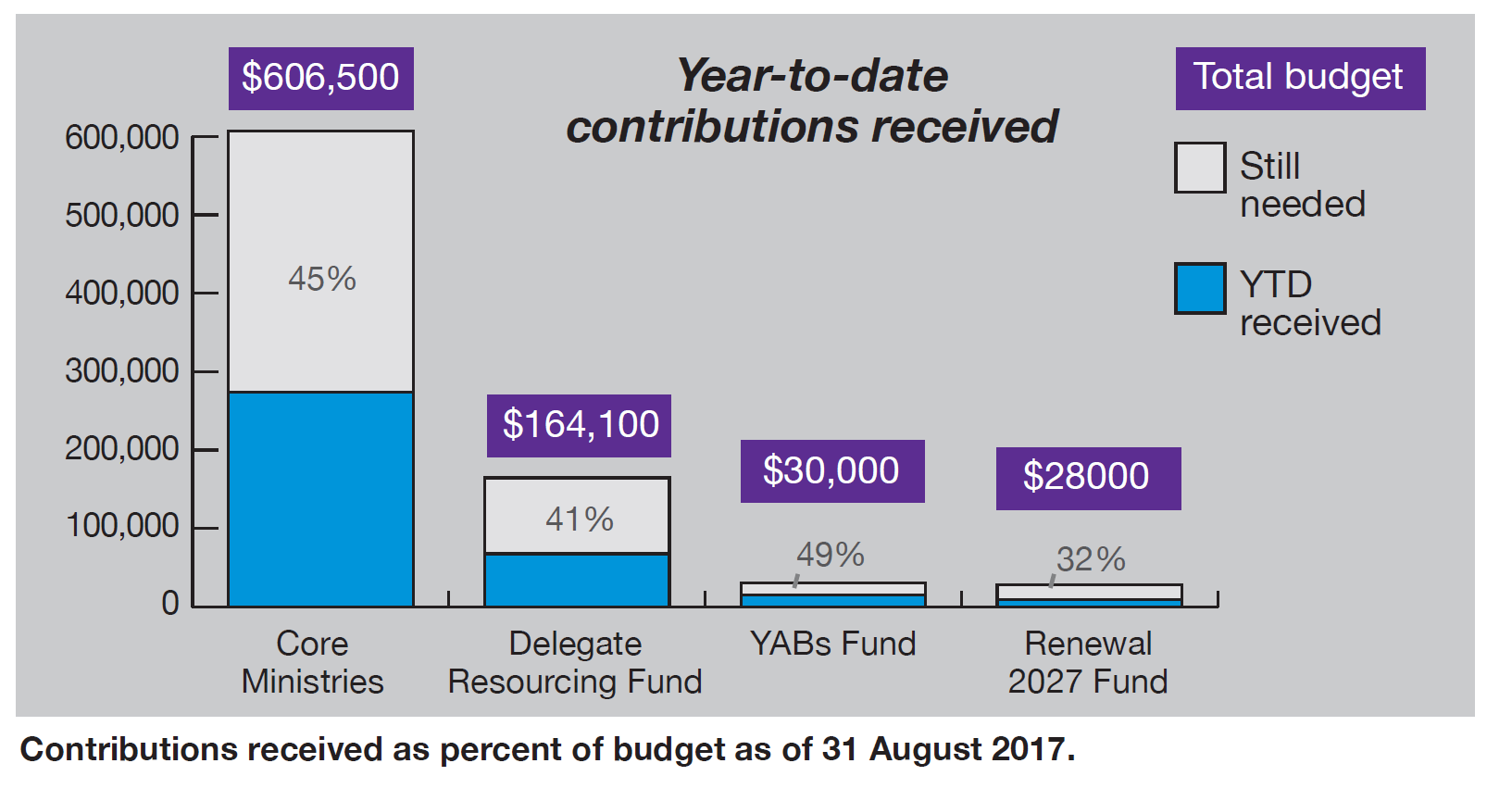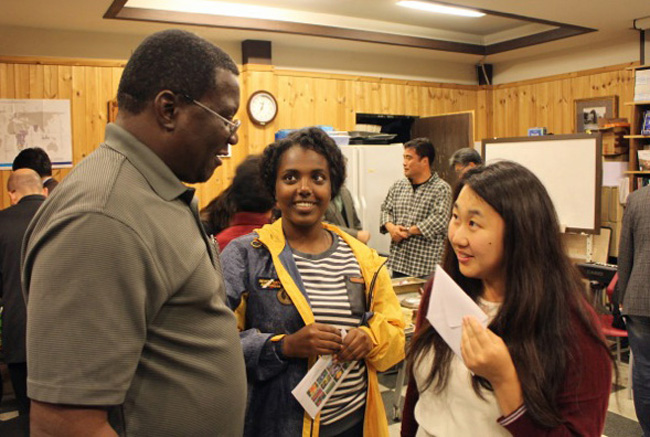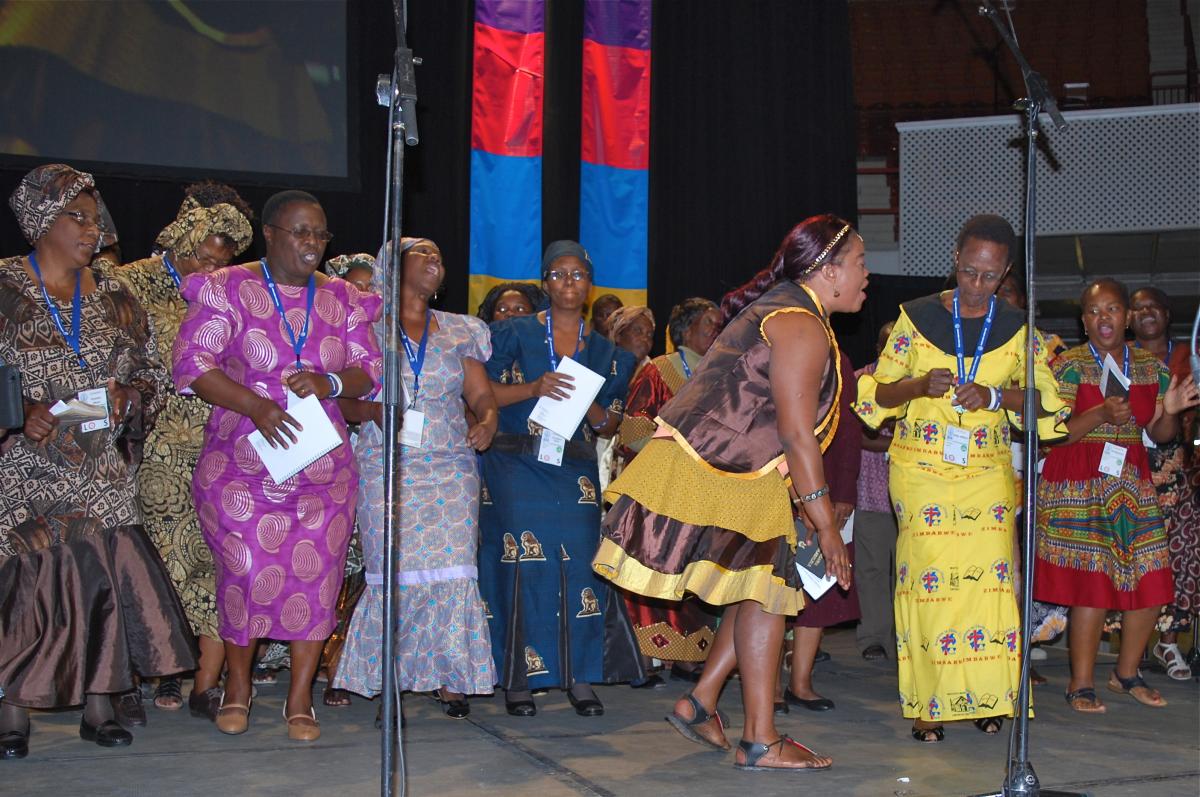-
The joy of Christian unity
Celebrating the Week of Prayer for Christian Unity in Germany Over the more than 10 years I have been serving as pastor in Evangelische Freikirche Mennonitengemeinde Regensburg, the Burgweinting neighbourhood has been celebrating an ecumenical worship service during the Week of Prayer for Christian Unity.* Participating congregations consist of the Roman Catholic congregation, the Evangelical…
-
Solidarity with indigenous struggle
Bogotá, Colombia – From April 2016 to January 2017, indigenous people and allies gathered in the northern United States to protest a plan to build pipeline they believed would violate sacred burial grounds and threaten to contaminate drinking water. Mennonite church groups in the U.S. and around the world expressed solidarity with Standing Rock Sioux…
-
The Bible still speaks, say Renewal 2027 speakers
Augsburg, Germany – Regional Anabaptists and leaders from around the world gathered 12 February 2017 for “Transformed by the Word: Reading Scripture in Anabaptist Perspectives,” the first in a 10-year series of events called “Renewal 2027” organized by Mennonite World Conference (MWC) to commemorate the 500th anniversary of the Anabaptist-Mennonite tradition with appreciation and critical…
-
Ministry partner update: ICOMB – April 2017
The International Community of Mennonite Brethren (ICOMB) is made up of 21 national churches in 19 countries with approximately 450,000 members. ICOMB exists to facilitate relationships and ministries to enhance the witness and discipleship of its member national churches – connecting, strengthening and expanding. Gathering of global Mennonite Brethren fans passion: ICOMB consultation on mission…
-
A unique opportunity for greater unity
Global Anabaptist Project collects data on the MWC family worldwide The results of the recent Global Anabaptist Profile (GAP), an extensive three-year survey of 24 member conferences of Mennonite World Conference (MWC), are cause for celebration: the church is growing and the gospel is spreading – and the churches of the Global South are the…
-
Holistic care in Semarang
How do our member churches express the MWC Shared Convictions in beautiful, local variety throughout our global body? The October 2016 issue of Courier/Correo/Courrier seeks to discern the variety of reasons why Anabaptist communities from around the world come together to form MWC. In the articles that follow, writers reflect on the question: How does Christ’s love for…
-
Congolese counter violence with prayer and workshops
Kinshasha, DR Congo – “Our God has contradicted mankind’s maneuvering. Praise our God,” says Pascal Kulungu, instructor at the Center for Peacebuilding, Leadership and Good Governance (CPLB), and member of Communauté des Églises de Frères Mennonites au Congo (CEFMC – Mennonite Brethren church in DR Congo). In late 2016, leaders from the Mennonite national churches…
-
Songs, sermons and saucers
Bogotá Colombia – Music from other cultures, Scripture readings on a common theme, shared food and special offerings characterize World Fellowship Sunday, a celebration of Anabaptist family in Mennonite and Brethren in Christ churches around the world 22 January 2017. The theme of 2017 was “My cry is heard,” reflecting on God’s faithfulness amid hardships in…
-
From a broken leg to a mended heart
During a visit to Anabaptist churches in Japan, MWC regional representative KyongJung Kim fellowshipped with two Mennonite Brethren families over a delicious meal of Okonomiyaki, an Osaka special. His host, Naoge, shared her story of how Jesus changed her life and used an accident to bring about healing. Naoge’s testimony I accepted Jesus when I…
-
MWC financial update
We are grateful for the steady flow of contributions in support of Mennonite World Conference, whether from our national member churches, local congregations, or individuals. During the first part of the year, we received strong support for our core activities; however we still rely on end-of-year contributions to meet our financial commitments. It is a…
-
Our mission and Shared Convictions
How do our member churches express the MWC Shared Convictions in beautiful, local variety throughout our global body? The October 2016 issue of Courier/Correo/Courrier seeks to discern the variety of reasons why Anabaptist communities from around the world come together to form MWC. In the articles that follow, writers reflect on the question: How does Christ’s love for…
-
Songs of the Trinity and shalom
How do our member churches express the MWC Shared Convictions in beautiful, local variety throughout our global body? The October 2016 issue of Courier/Correo/Courrier seeks to discern the variety of reasons why Anabaptist communities from around the world come together to form MWC. In the articles that follow, writers reflect on the question: How does Christ’s love for…
